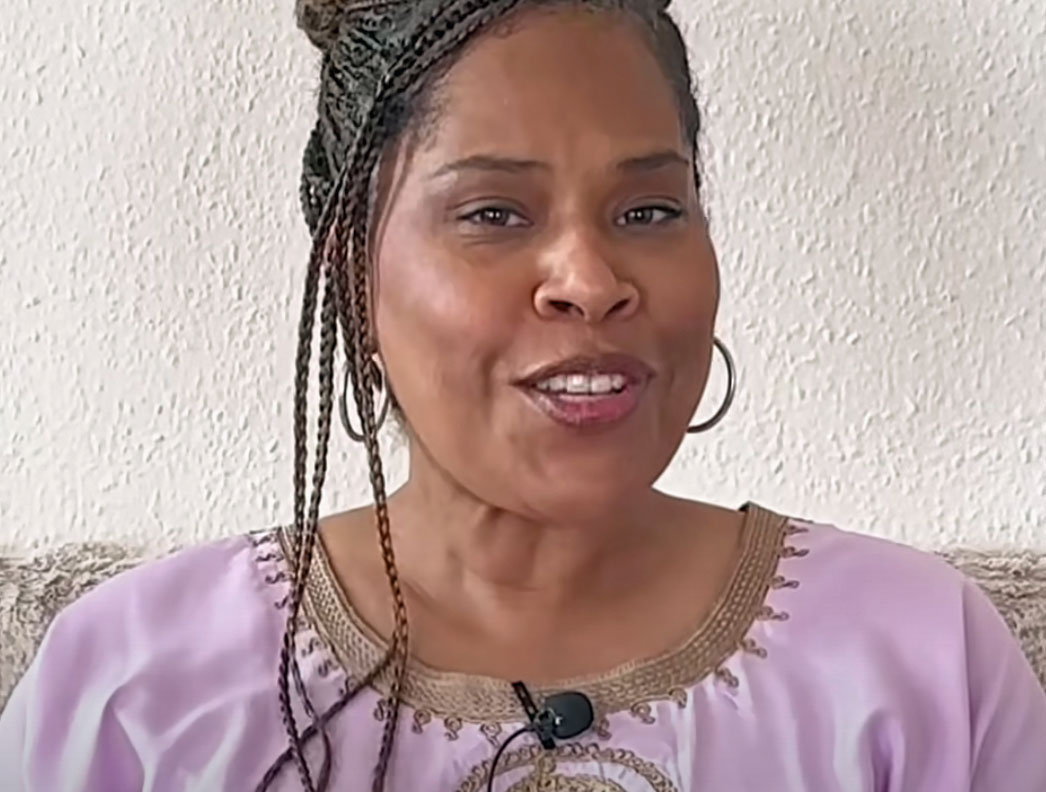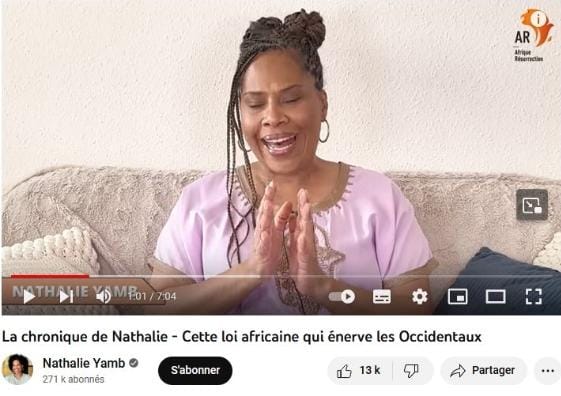Did Pan-African social media influencer Nathalie Yamb really criticize anti-gay laws?
Moïse Manoël-Florisse, is an African-Caribbean online journalist keeping an eye…
She said governments shouldn’t intrude on adults’ sexual choices, but what did she mean?
In a video published on June 1 to mark Pride Month, Nathalie Yamb, a hugely popular pan-African activist, expressed her opinion on the rights of LGBT+ people in Africa, just as Uganda enacted a harsh law against homosexual and transgender people.
Nathalie Yamb is a popular anti-French Cameroonian-Swiss activist with about 1 million followers on various social media platforms. For 76crimes, Abdallah Timera (pseudonym), a human rights defender from Senegal, deciphers this video for us.
76crimes: After a brief introduction, Nathalie begins her video as follows: “For me, the state has no business interfering in the sexual or marital choices of responsible, consenting adults. You want to have mougou [meaning “make love” in the Nouchi language of Côte d’Ivoire] between men, between women, or you want to take 18 women, that’s your choice”. Don’t you see this as an encouraging call for the decriminalization of homosexuality in Africa?
Abdallah Timera smiles.
Abdallah Timera: The sentence you quote is a bit truncated if you don’t know the rest: ‘on the other hand, I am vigorously and radically opposed to any attempt to impose on populations lifestyles and legislation that reflect neither majority societal customs, nor the values or culture of the peoples concerned’.
My understanding of Nathalie Yamb’s comments is somewhat different from yours. To me, she seems to be saying that as long as people are homophobic, African states have nothing to change. On the other hand, if African public opinion were more divided, perhaps she’d call on states to take responsibility. In any case, she’s not taking much of a risk, and doesn’t seem to be in any hurry to embrace the intersectionality of struggles with local, black, African LGBT+ communities, since her pan-Africanism doesn’t seem to include the Maghreb, either.

De facto, let’s face it, Nathalie Yamb is homophobic. By not deigning to take the side of oppressed sexual and gender minorities, she is taking the side of those who vilify and acrimonize them on a daily basis, by bullying them. This is what she calls “Africa, which has known how to deal with these issues for millennia and didn’t wait for Westerners to do so”. In so doing, she completely sidesteps human rights violations with an intellectual pirouette and a punchline. It’s a caricature.
Like many pan-Africanists, for Nathalie Yamb, homosexuality is a burning issue, but not a priority one. It even appears as a reminiscence of a Western agenda, whereas Pan-Africanism is precisely a movement of political and popular affirmation and rejection of the West, whether culturally, socially or economically. Nathalie Yamb seems to be leaving it up to the people of Africa to regulate “the problem” of homosexuality, while driving France out of the African continent is high on her list of priorities.
76crimes: Is pan-Africanism in Africa homophobic?
Abdallah Timera: Of course. But I imagine that there’s a tension between political stances, in the public sphere, and the fact that these people know LGBT+ people in their entourage. There are a thousand and one ways of being pan-Africanist, and anything that allows you to distance yourself from the West is good for some people, unfortunately.
In Senegal, Ousmane Sonko’s candidacy for the February 2024 presidential election represents a possible outlet for political pan-Africanism in my country, and it goes without saying that Sonko is deeply homophobic and in favor of the over-criminalization of homosexuality, as a conservative Muslim. Nevertheless, I think there’s a gulf politically between him and Yoweri Museveni, the Ugandan president. You can’t put all homophobes and pan-Africanists in the same basket.
Generally speaking, the road to acceptance of LGBT+ people is still long in Africa. In my biomedical field in Dakar, I observe the extent to which my department head, a Salafist [a follower of the Sufi Islamic Salafism movement in West Africa] and his Mouride deputy [a member of the Islamic Mouride Sufi Brotherhood] flee the debate as soon as the question of HIV in LGBT+ populations comes up. They set up stratagems to be absent when there are meetings on the subject. However, I would like to remind them that they are committing serious ethical breaches.





